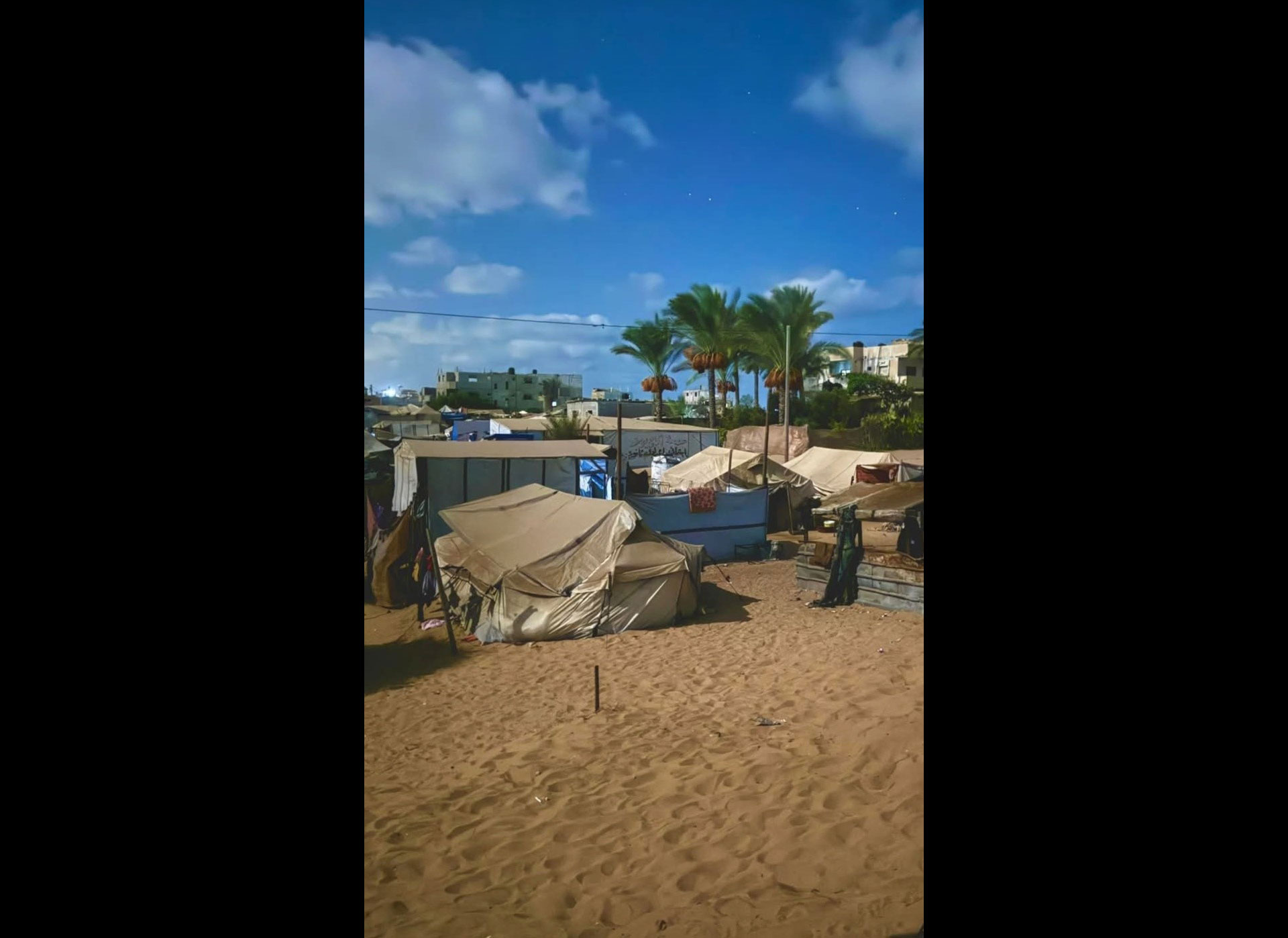
Until when will I remain a refugee in my own homeland?
Until when will I remain a refugee in my own homeland?
A question that echoes deep inside me every morning, when I open my eyes to a reality without shape or promise. No home to return to, no job to sustain my dignity, no safety to lean on, and no memory I can rest upon without being burned by its pain. Everything around me is shattered—even the memories that once comforted us now wound us instead.
What’s left are only piles of stones, yet we remember each one as if it carried the names of our loved ones. Every stone tells a different story: one was once a wall that heard our laughter, another a corner where we hid from fear, and another witnessed our last goodbye before absence swallowed those we loved. These stones are not silent—they speak whenever we pass by, whispering the stories of the homes that fell, the children who never grew up, and the mothers who still wait.
We live now in an immense emptiness, carrying our homeland in our chests like an ember that never dies, walking among the ruins as if searching for ourselves amid the dust. Every breath we exhale is heavy with loss, and every breath we take is filled with the bitterness of longing, as if we are breathing pain instead of air.
Were we destined to remain strangers in our own land?
To wait for joy as the drowning wait for a lifeboat?
To dream of a small home, only to be awakened by the sound of another explosion?
Yes, we are refugees in a homeland we loved more than it ever loved us. We hold the keys to homes that no longer exist, and we write the names of those who are gone on crumbling walls—hoping memory will live on where life has died.
And yet, despite the exhaustion, the destruction, the loss—we will keep carving new hope out of the stone, because we simply have no choice but to live, and to believe that one day, from beneath this rubble, a homeland will rise again that truly resembles us.
Zaki A Sharqawi
